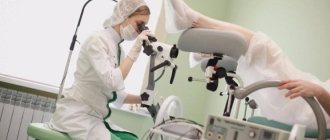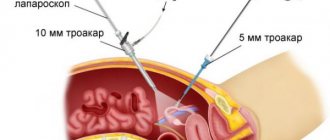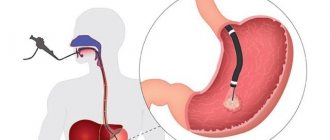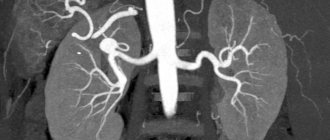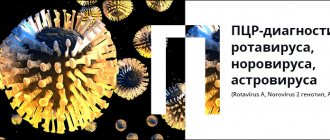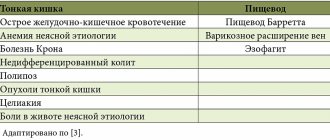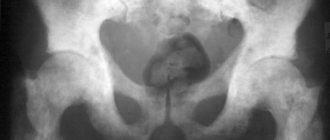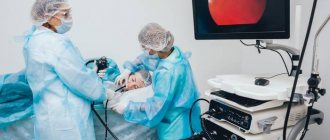PET CT is the most necessary and informative study in oncology to detect metastases. PET CT stands for positron emission tomography, performed in conjunction with computed tomography. In Europe or Israel, it is prescribed in most cases to cancer patients, both before and after surgery. Moreover, in these countries the operation absolutely cannot be performed without having done a PET scan and without receiving its interpretation from an independent specialist. Otherwise, the patient’s fate may turn out to be unenviable. In our country this is still neglected, unfortunately. But not in our clinic.
PET CT examination in Moscow at the oncology center is available to everyone at a cost from 0 to 70 thousand and where to do it in Russia: we offer free procedures for patients with a quota in Moscow, St. Petersburg, Tyumen, Ufa, Yekaterinburg, Lipetsk, Kursk, Belgorod and Orel, and soon in Rostov and Samara. For patients who do not have a quota, or those who do not want to wait in line, we offer this procedure at a price of 30 to 70 thousand, depending on the location and quality of the procedure. For such patients, the results of your examination (including histology) will be reviewed by the famous Israeli diagnostician Alexander Aronov; this is a free option for our patients on PET CT. If necessary, a council of Israeli doctors will see these results and make a decision on the treatment strategy.
| Service | Cost, rub.) |
| PET CT | from 0 to 90,000 rubles |
What do you get when you seek treatment from us:
- quick and accurate understanding of your problem,
- carrying out all diagnostic measures as soon as possible,
- our consultant is always in touch with you,
- the right strategic decision from a council of top-class specialists, the decision is made not by one doctor, but by the heads of departments and clinics: leading specialists in your problem areas, a specialized surgeon if necessary, a diagnostician - an Israeli general practitioner,
- the best treatment option in the Russian Federation according to international standards, these are the most qualified doctors, and their work according to Western standards, guaranteeing the best result,
- solving all problems at all stages, that is, Dr. Aronov is always “with you”, for everything we will offer the best solution,
- peace of mind, clear steps in treatment - you get all the benefits of Israeli and European medicine in Russia, care of an Israeli doctor in Russia.
Get a PET CT scan in Moscow
Ordering an urgent PET scan in Moscow or other Russian cities is not a problem for our patients, and we can help you with this - call. Of course, some patients can get a PET scan done free of charge under a quota, but this option is only available in a few regions of the Russian Federation, but some will not be given a referral, or the quota may end when the budget is exhausted. If this is not possible, or if you want to undergo an examination urgently and using the truly best equipment in the Russian Federation from Israel and the USA from highly qualified doctors without the risk of errors and inaccuracies, contact Medis. The fact is that until recently in Russia they did not know how to do PET, much less know how to decipher it. To carry it out, you need the equipment itself and also a cyclotron (medical nuclear reactor), as well as a team of highly qualified specialists: physicists and doctors. They don’t even teach this in the Russian Federation; all specialists studied abroad.
How to undergo a study using compulsory medical insurance funds
1. You must obtain form 057/у-04 (sample No. 1)
or another document that is an internal document of the medical institution sending for the study.
2. If the patient is insured in St. Petersburg
, with the received
form 057/u-04,
you must contact
the medical commission
at one of the three medical institutions listed below:
- GBUZ "St. Petersburg Clinical Scientific and Practical Center for Specialized Types of Medical Care (Oncology)." Address: St. Petersburg, Pesochny village, st. Leningradskaya, 68 A;
- St. Petersburg State Budgetary Healthcare Institution "City Oncology Dispensary" (there are 2 of them). Address 1: St. Petersburg, 2nd Berezovaya Alley, 3/5; address 2: St. Petersburg, Veteranov Ave., 56;
- St. Petersburg State Budgetary Healthcare Institution "City Hospital No. 40 of the Kurortny District." Address: Leningrad region, Sestroretsk, st. Borisova, 9.
After passing the medical commission, you can sign up for the study.
If the patient is insured in the Leningrad region or in any other region of the Russian Federation
(not in St. Petersburg), you do not need to go through a medical commission; it is enough to receive
form 057/u-04 (sample No. 2)
or another document that is an internal document of the medical institution sending for the study. If the referral is completed correctly, you can sign up for the study.
Interpretation of PET CT images
Now high-quality PET and low prices for its decoding have become available in Moscow, and not just abroad. We will send you to our center for precisely this kind of high-quality research, which uses the freshest radioisotope reagents (and this is extremely important for the result), and which is carried out by specially trained specialists, including Israeli ones. In Russia, only four or five doctors can “read” the resulting image, but for you, professor from Israel Einat Even-Sapir, one of the co-authors of the development of PET protocols, or another highly qualified doctor with extensive experience can do this for you. Our center is equipped with advanced Gemini TF64-Philips PET/CT and BrightView XCT-Philips SPECT/CT equipment, which is maintained by competent engineers who studied in Israel and America. The center also has its own laboratory where radiopharmaceuticals are produced, and its own cyclotron in a secure bunker (no one else in Moscow has this). This is a guarantee of the freshness of radioisotopes, the half-life of which is 2 hours.
Without PET CT, oncology treatment is almost blind. And this is a huge risk for your life. We offer you to have a complete and detailed picture of the condition of your body, on the basis of which you can make the only right decision about the treatment strategy that will be most effective for you. Only for some early oncological diseases PET is not done as a standard: brain cancer, prostate cancer...
Deadlines for issuing results
The result can be collected from the doctor the next day, although the images themselves are ready within an hour after the scan. However, they are of no value to the patient, since they must be deciphered by a specialist. It takes a day to decipher the results. Sometimes the doctor needs more time, but no more than 2-3 days.
Article on the topic: Compulsory medical insurance in the insurance company and how to apply for it
The patient receives photographs with a conclusion. With this paper he must go to the attending physician, who will prescribe treatment.
Upon request, results are provided on electronic media. Additional charges may apply for this service.
How much does a PET CT cost?
With us you can undergo a PET CT scan at different prices. In Moscow, the cost of PET starts from 49,900 rubles and can reach up to 70,000 rubles, depending on its quality and the place where you decide to have it done; in other cities - from 37,400 rubles. The highest price implies additional options, for example, for metastatic prostate cancer - with choline PET-CT of the whole body with two independent descriptions from international experts, which negates any inaccuracies. We consider ours to be the best option for conventional PET, its cost is 70 thousand, but this price includes 2 expert opinions and we always have “fresh” radioisotopes. Each such image is studied by a council of heads of departments of all relevant specializations, free of charge. Also, as an option, it is possible to obtain an opinion directly from the co-author of the PET image reading technique - Professor Even-Sapir Visar.
Who should get a free scan?
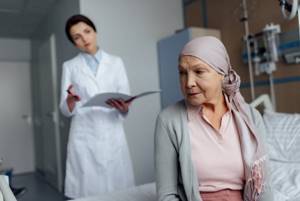
To get a free CT scan, you need to have medical indications, as well as a referral from your doctor. Only patients with oncology, hematological diseases and severe diseases of the cardiovascular system are included in the “selected” list.
Important! The list of indications and contraindications is contained in Order of the Department of Health No. 333 dated May 17, 2019.
Indications for free PET/CT:
- tumors of the mammary glands, genital organs;
- sarcoma;
- malignant formations in the stomach, pancreas, intestines, liver, larynx and oral cavity;
- thyroid tumors;
- lungs' cancer;
- tumor of the head, neck;
- metastases to other organs;
- epilepsy;
- Alzheimer's disease;
- stroke;
- ischemic disease;
- skin cancer, melanoma;
- damage to the lymphatic system, lymphoma;
- Parkinson's disease;
- leukemia and other oncology.
Thanks to high-precision equipment, it is possible to detect cancer at an early stage, when treatment is most effective. The risk of relapse and complications is reduced, the patient can count on a complete cure.
Important! Even if there are indications, there are restrictions on free PET-CT under compulsory medical insurance. It can be done at the expense of the Insurance Fund no more than 4 times a year.
Why do you need to do a PET CT scan?
In world practice, PET CT is included in examination protocols for cancer - all large clinics in developed countries conduct it, and this examination has already become a standard in oncology. This cannot yet be said about Russia. But a doctor who does not refer an oncological patient to this study in necessary cases cannot be considered professional, and you should not contact him and hope for his help. After all, PET is truly a unique science-intensive technique related to the field of nuclear medicine, which immediately answers many questions regarding the state of the body, and predicting future treatment or correction of already ongoing therapy. During this diagnostic procedure, a three-dimensional image of all body processes is created and information can be obtained at several levels at once: cellular, molecular and organ. The tomograph provides images in 64 projections.
- PET CT detects a malignant tumor at the earliest stages of development and gives an accurate answer about the stage of the process and the boundaries of the tumor
- Shows the presence or absence, as well as the exact location and extent of metastases
- Helps to delineate the boundaries for surgical intervention
- Allows you to evaluate the metabolism of atypical and normal cells and indicates changes in metabolism even if the tumor has not changed in size
- Allows assessment of the effectiveness of cancer treatment
- Clarifies the diagnosis in case of controversial or insufficient data from other studies
- Helps doctors build the correct sequence of treatment steps for a specific patient
- Today, PET is already used abroad as a therapeutic procedure for radioisotope therapy for thyroid cancer and others.
Conditions for the procedure
PET/CT will be performed if:
- detection of a suspicious neoplastic lesion;
- the presence of its morphological verification (not in all cases);
- availability of compulsory medical insurance policy and Russian citizenship;
- correctly completed study documents;
- appropriate preparation for the procedure;
- availability of quotas.
When can a study be refused?
Refusal to study is due to:
- lack of necessary documents (see list below);
- non-compliance with the rules of preparation for PET/CT;
- malfunction of diagnostic equipment;
- inappropriate preparedness of the subject;
- violation by the patient of the requirements of the medical organization;
- presence of contraindications.
Types of research
It is possible to perform a PET CT scan in Moscow with pharmaceuticals such as 18F-fluorodeoxyglucose or 18F-choline, as well as 18F-fluoroethyltyrosine. The choline study is currently most effective in evaluating patients with prostate cancer or liver cancer. The freshness and quality of the radioisotopes used is ensured by the fact that in the Moscow center the nuclear reactor is located under the room where the research is being carried out, in a special protected basement. No one in Moscow has such resources anymore, which raises the question of how relevant diagnostics are, sometimes with perhaps not very fresh drugs. The procedure can be performed without contrast or with a contrast agent to improve visibility. Thus, some very small tumors are not noticeable without contrast. The contrast technique makes it possible to accurately see the source of the malignant process and metastasis.
Radiation exposure to the patient during PET scanning
Radiation exposure during PET/CT depends on the radiopharmaceutical used and the scope of the study. For example, scanning the head will expose you to less radiation than scanning the whole body. To minimize harm from PET/CT, the following standards are used:
- The research is carried out using ultra-short-lived isotopes, the half-life of which is several minutes or hours.
- An individual dose calculation is used for each patient, taking into account weight, height and age.
- The scanners use special filters and programs that reduce X-ray doses.
- Applying the required amount of liquid not only improves the quality of the resulting image, but also helps to remove the radiopharmaceutical faster.
In general, PET/CT is a fairly safe procedure, but it is performed only for strict indications when other studies do not provide the necessary information.
Book a consultation 24 hours a day
+7+7+78
Preparation for the procedure
Before the procedure you need to undergo some preparation. 2 days before the diagnosis, you need to avoid drinking alcohol, and one day before the diagnosis, do not eat carbohydrates, do not exercise, and do not get too cold. The day before, you can easily have dinner with low-fat cottage cheese products, boiled meat or fish. You can only drink still water, and in increased quantities. The procedure is carried out on an empty stomach. After the administration of the pharmaceutical drug, you will need to drink a lot of water to improve visibility. The administration of the drug itself is completely safe and does not cause pain. It is distributed over an hour, which must be spent motionless and silent. When the distribution is complete, a scan will be carried out.
General information about the method
PET is widely used in oncology. Most studies are performed for the purpose of searching, staging, and differential diagnosis of tumors.
Other indications:
- assessment of neurological disorders,
- search for an epileptogenic focus in the brain,
- sometimes searching for inflammatory processes,
- assessment of myocardial hibernation.
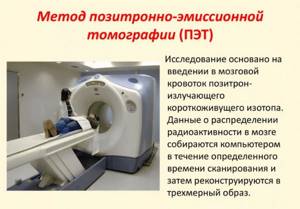
The essence of PET is to search and localize areas of radiopharmaceutical (RP) fixation. A radiopharmaceutical is a chemical substance in the structure of which one or more atoms have been replaced with radioactive ones.
- Typically, fluorine with a mass number of 18 is used as a radioactive label. Radioactive fluorine is introduced into the structure of a chemical substance: deoxyglucose or amino acids, methionine, tyrosine.
- The drug is injected into a vein, distributed throughout the body, accumulating in certain areas.
- Zones of pathological (tumors, inflamed tissues, epileptogenic foci) and physiological (brain, kidneys, bladder) accumulation of radiopharmaceuticals are distinguished.
- As the radiopharmaceutical disintegrates, it releases particles that are captured by the detector. The device collects data from the entire body and creates a map of the distribution of radioactivity.
CT is performed to improve spatial resolution. This method allows you to more accurately assess where the lesion is located and what organs it is adjacent to. Read the differences between these methods here.
Contraindications
PET CT does not have a negative effect on the body, despite the radiation produced: the dose of this radiation is very small, and the information obtained is extremely valuable. However, there are some contraindications for this procedure:
- Pregnancy and breastfeeding (lactation will need to be stopped for at least a day, but the study will not be carried out for pregnant women;
- Severe human health condition;
- Tuberculosis;
- The period of chemotherapy or radiotherapy (about a month after the end of the course you can do a PET scan);
- Less than a month has passed since laparoscopy or open biopsy, and more for more extensive surgery;
- If you have diabetes, you need to see an endocrinologist.
To find out even more details about PET CT, sign up for a procedure, and check the price of PET CT, call our numbers on the website, and Medis medical coordinators will competently advise you and make an appointment for diagnostics in 12 cities of Russia or an appointment with a doctor.
How to sign up for a policy

Despite the presence of a referral, appointments are carried out by appointment. There are several options for how to sign up:
- By phone. You need to call the phone number indicated in the direction and provide all the information that is on the form. It is imperative to provide the details of your compulsory medical insurance policy, since only this document allows you to be examined for free.
- By email or through the website. This option is only available in advanced clinics. You must submit an application for registration, indicating your personal information. The clinic manager will contact the patient. He will clarify the necessary information and announce the date and time of the appointment.
- Through the Unified Coordination Center. This service is available only to patients who will undergo scanning in Moscow. To make an appointment, you can call the number or use the form on the website https://pet-omc.ru/.
Related article: How to check the compulsory medical insurance policy, its validity and readiness
After the diagnosis date is known, the patient will have to prepare. It is carried out one day before PET-CT. All fruits, juices, potatoes, pasta, carrots, beets, tomatoes, legumes, corn, sauces, seasonings, and confectionery are excluded from the diet. During the day you need to avoid physical activity.
Note! If a patient has diabetes, he is given special recommendations regarding not only nutrition, but also medications.
The study under the compulsory medical insurance policy is carried out strictly on an empty stomach (you cannot eat for at least 6 hours), you can only drink clean water. Be sure to take all the necessary documents to the hospital. It is the lack of important documentation on the day of CT that can cause diagnostic failure.
How is PET/CT performed?
After completing all recommendations for preparation and examination, the patient comes to the clinic for a PET/CT scan. After talking with your doctor and reviewing your medical documentation, you should drink water for 30-60 minutes to exclude contraindications for the study. After this, the patient is invited to the office, the blood sugar level is determined, and a radiopharmaceutical, fluorodeoxyglucose, and a diuretic are administered through a catheter. 60-120 minutes after the administration of the radiopharmaceutical, the patient is invited to the examination itself. It lasts no more than an hour, while the patient lies down. It is extremely important that you do not talk or move during the PET/CT examination to get the most accurate results. The examination is completely painless and does not cause any discomfort. Throughout the entire period of PET/CT, medical personnel are in the office and monitor the process. Once completed, it takes 15-20 minutes to obtain the final image, after which the doctor will inform you when the description is ready.


